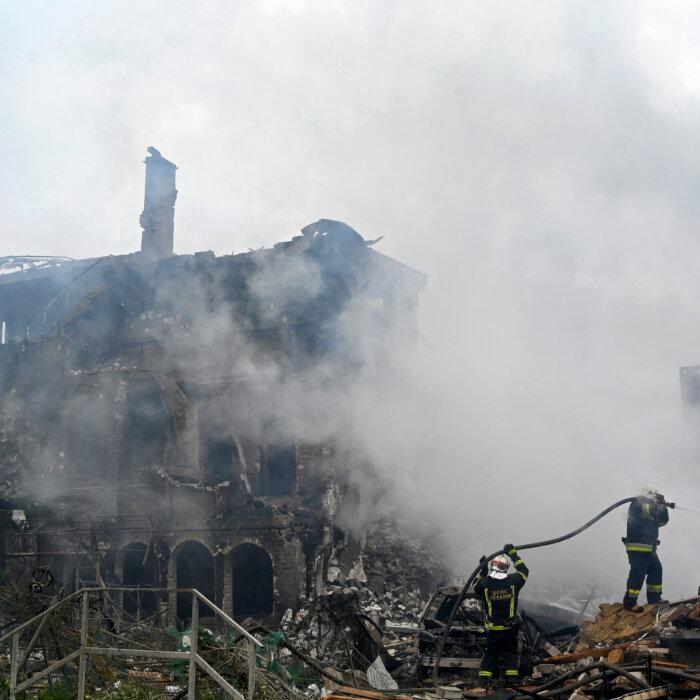“Chairman of the State Affairs of the DPRK Kim Jong Un has decided to send 1,000 sappers to Russia to clear mines on Russian territory, as well as 5,000 military construction workers to restore infrastructure destroyed by the occupiers,” Russian Security Council Secretary Sergei Shoigu said in the statement, TASS reported. Sappers are military combat engineers.
Shoigu had arrived in North Korea’s capital, Pyongyang, on behalf of Russian President Vladimir Putin to discuss bilateral partnerships, which include the restoration of the Kursk region, TASS stated.
There are also plans to build memorials for the North Korean soldiers who died in the Russia–Ukraine war in Kursk. The construction of a museum in Pyongyang “with the participation of the Russian side was discussed,” the statement said, according to TASS.
The deployment was part of a “comprehensive strategic partnership” Kim signed with Putin in 2024. Russia’s ongoing war with Ukraine began with the former’s incursion into Ukrainian territory in late February 2022.
Russia has admitted that North Korean forces were fighting alongside its military in the Kursk region.
In April, when Russia said it retook Kursk, the Ukrainian military’s general staff dismissed the claim and said its soldiers continue to fight within Russia’s borders.
Russia–North Korea Nexus
North Korea and Russia have never disclosed how many North Korean troops have been sent to Russia or how many of them have been killed. But according to South Korean, U.S., and Ukrainian assessments, about 15,000 North Korean soldiers have been deployed to Russia. South Korea’s spy agency said in April that about 600 North Korean soldiers have died on the Russia–Ukraine battlefronts.The deepening ties between North Korea and Russia have raised worries among the United States, South Korea, and their partners that Putin may, in return, provide Kim with much-needed sophisticated technologies that can help advance his nuclear and missile programs.
According to the latest statement quoted by TASS, Shoigu is visiting Pyongyang for the third time in nearly three months. There are talks of increased communication and collaboration between the two countries.
Flights and railway communication between Russia and North Korea are expected to resume.
‘Soldier for Hire’
In an emailed statement to The Epoch Times, a State Department spokesperson said that Russia’s continued use of North Korean soldiers in the Ukraine conflict was “deeply concerning.”“The North Korean regime correspondingly is now relying on Russia to provide it with desperately needed funds in exchange for labor and soldier for hire schemes,” the spokesperson said.
North Korean workers financially support the regime’s “unlawful WMD and ballistic missile programs, and those workers based overseas, including in Russia, are generating income in violation of UNSCR 2397,” the statement said.
Besides 2397, U.N. Resolutions 1718, 1874, and 2270 prohibit member states from receiving any arms, related materiel, arms training, or assistance from North Korea, and from providing the same to the communist regime.





